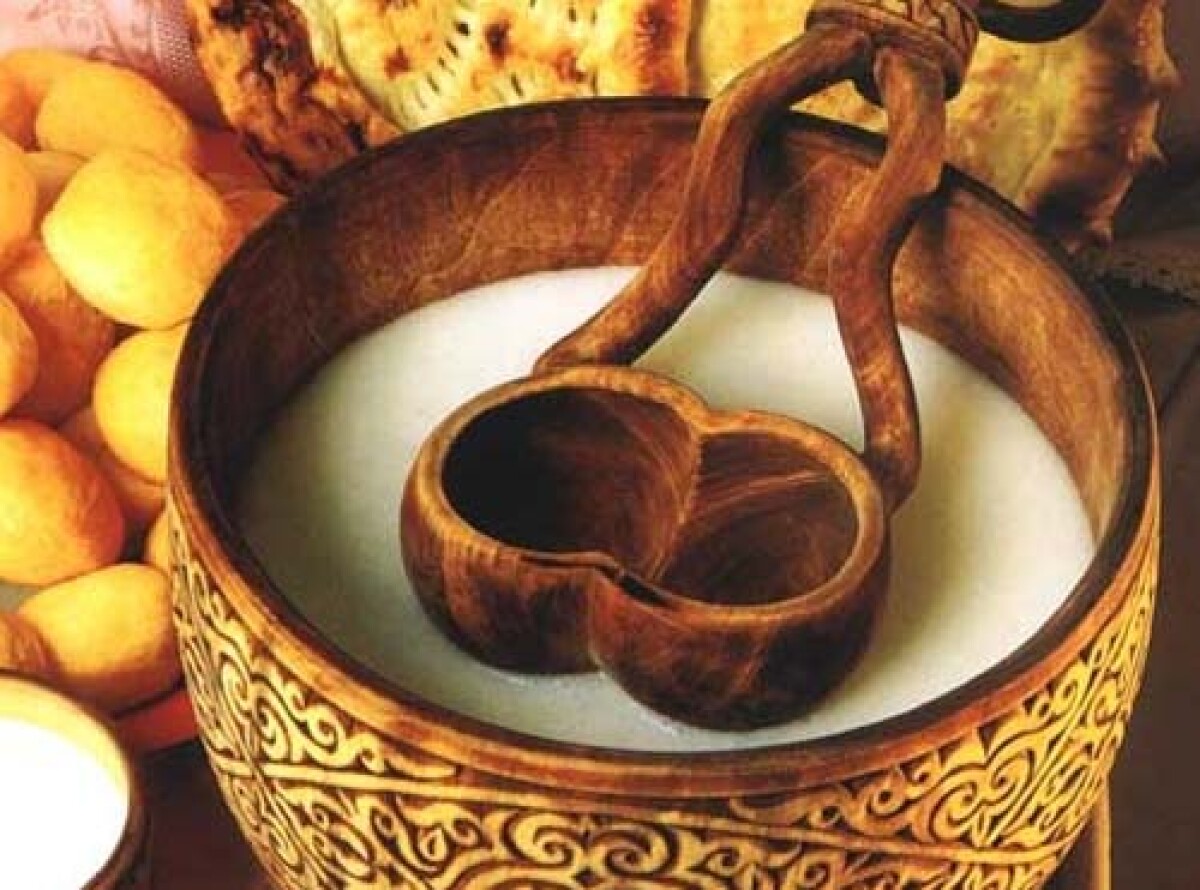
Among the Kazakhs, the interference of a boy (men) in cooking
or in the production of food was considered as a disgrace, on the other hand, it
was an honor for men to milk the mare, and this duty was honorable. Probably,
this custom preserved from the Scythian times, it was described by Herodotus -
(OJ). It was not right to pour the residues of kumiss that were left on the
bottom of the cup after drinking. Some people do not know the customs and
habits of the Kazakhs, some, unfortunately, neglected them, and so they poured
the residues of kumiss on the ground. Then Kazakh looks on the visitor with
horror – host to the visitor. Once in the morning, one person, after milking mares,
went home with a full bucket of kumiss and another person saw the kumiss in the
bucket and said: "Oypyrmay what a kumiss, like a pure stream of water".
When the host poured kumiss in a wineskin, and looked into the bucket, he found
that the stone at the bottom split in to two parts. When someone cursed,
someone say, "Your Tongue is not a stone." "The tongue can split
the stone if not a stone, so the head" - said in a Kazakh proverb.
Patron of horses - grandfather Kambar
Let the god to fulfill every wish
Let there be a lot of mares,
Let there be many kumiss
Children will be healthy,
The relatives will be friends
Let the unity be strong
Unlike on other toys, all the blessings on the kumiss toy should begin with the patron saint of horses Kambar. According to Kazakh legends, Kambar is not only the patron of horses, but also he was the first who prepared kumiss. When people milked the cows, they cooked her milk, just like the milk of sheep, and therefore they have tormented, as there was nothing good, but they wanted to cook kurt, cottage cheese, then Kambar-Ata cooked kumiss and taught everyone how to do it.
From the book of O. Zhanaydarov "Tengrianism: myths and legends of ancient Turks" some of the customs and beliefs of the Kazakhs, associated with a horse.
Photo: odvor.kz
